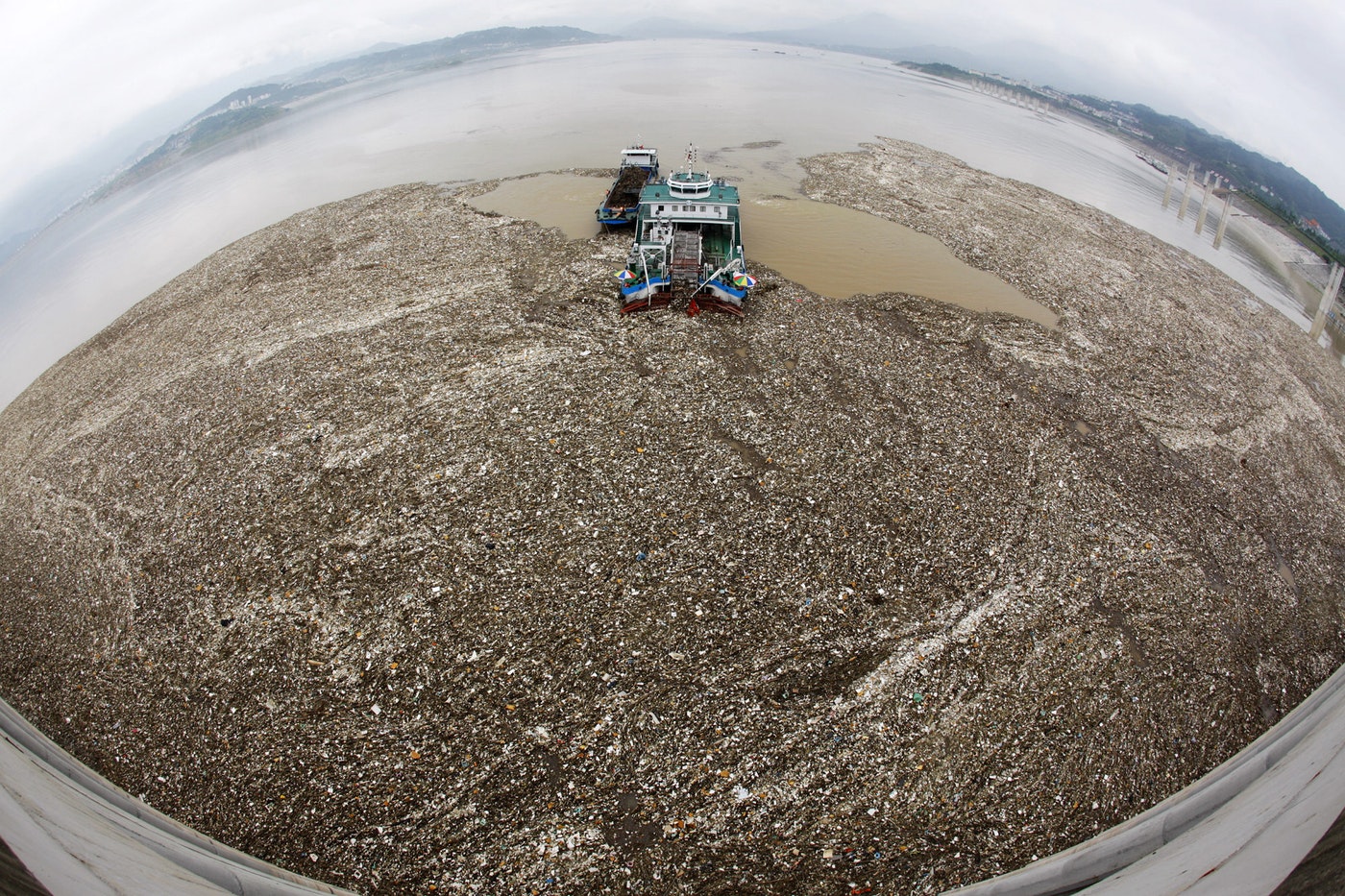 Just 10 rivers – eight of them in Asia – may be responsible for dumping almost four million tonnes of plastic into the seas every year.
Just 10 rivers – eight of them in Asia – may be responsible for dumping almost four million tonnes of plastic into the seas every year.
Calculating with the precision the source and amount of plastic trash in the oceans is difficult; estimates tend to cover wide ranges. Previous research has found about one-fifth of total ocean plastic trash comes from marine activities – plastic tossed from fishing boats, ships, drilling platforms and so on – with four-fifths from land.
A paper published in the journal Environmental Science and Technology, by scientists from the Helmholtz Centre for Environmental Research and the Weihenstephan-Triesdorf University of Applied Science, both in Germany, calculates that rivers contribute between 410,000 and four million tonnes a year to oceanic plastic debris, with 88 to 95% coming from only 10.
Those are the Yangtze, Xi and Huanpu in China; the Ganges in India; the Cross, bordering Cameroon and Nigeria; the Brantas and Solo in Indonesia; the Amazon, mostly in Brazil; the Pasig in the Philippines; and the Irrawaddy in Myanmar.
The researchers note that making more precise estimates of how much plastic is ending up the oceans is bedevilled by unknowns including the “missing plastic” problem − the mismatch between the large estimated plastic inputs into the sea, based on what is known about plastics produced, used, recycled and dumped in landfill, and the amount actually observed in the water, as plastic concentrations in different parts of the ocean can differ significantly.
The researchers used a similar methodology employed in an earlier study, published in Nature Communications, based on work by researchers from the Netherlands-based Ocean Cleanup project. This study calculated 1.15 to 2.41 million tonnes of plastic waste is now entering the ocean every year from rivers; 67% of the global total, they suggested, came from the top 20 polluting rivers.
The German team, led by Christian Schmidt of the Helmholtz Centre, compiled a larger data set – analysing plastic concentrations in 240 individual samples from 79 sites covering 57 rivers. They also classified plastic particles into those smaller or larger than five milimetres in size, and treated each cohort separately to make their calculations.
The scientists conclude that only a few river catchments contribute the vast majority of the total plastics load, targeted mitigation measures would be highly efficient. “Reducing plastic loads by 50% in the 10 top-ranked rivers would reduce the total river-based load to the sea by 45%,” they state.
collected : https://cosmosmagazine.com/biology/just-10-rivers-to-blame-for-millions-of-tonnes-of-ocean-plastic
Hi! I am a robot. I just upvoted you! I found similar content that readers might be interested in:
https://cosmosmagazine.com/biology/just-10-rivers-to-blame-for-millions-of-tonnes-of-ocean-plastic
Downvoting a post can decrease pending rewards and make it less visible. Common reasons:
Submit
Congratulations @rezwan! You have completed some achievement on Steemit and have been rewarded with new badge(s) :
Click on any badge to view your own Board of Honor on SteemitBoard.
For more information about SteemitBoard, click here
If you no longer want to receive notifications, reply to this comment with the word
STOPDownvoting a post can decrease pending rewards and make it less visible. Common reasons:
Submit
Congratulations @rezwan! You received a personal award!
You can view your badges on your Steem Board and compare to others on the Steem Ranking
Do not miss the last post from @steemitboard:
Vote for @Steemitboard as a witness to get one more award and increased upvotes!
Downvoting a post can decrease pending rewards and make it less visible. Common reasons:
Submit